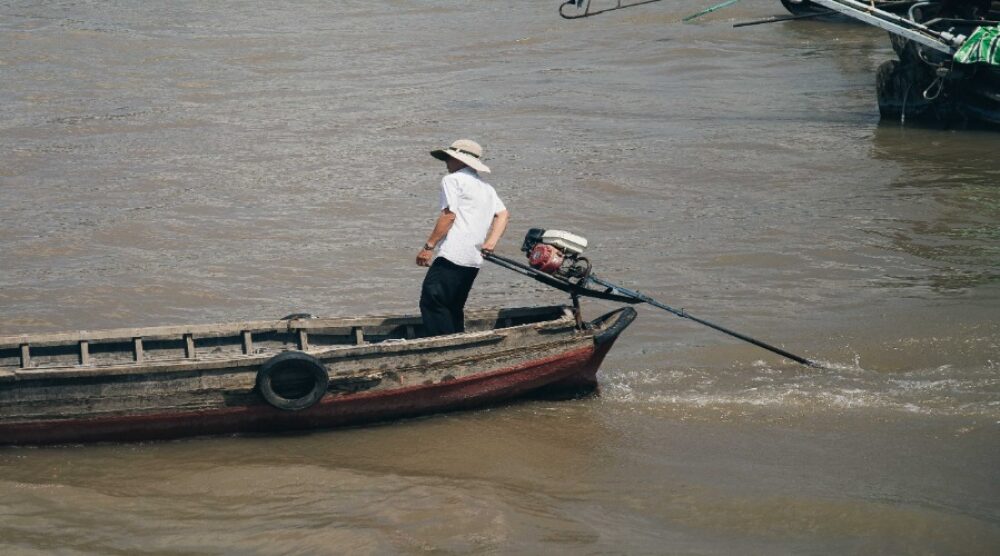Last week marked the 25th anniversary since Cambodia, Laos, Thailand, and Vietnam signed the Mekong Agreement to develop and protect the Southeast Asia’s most important river, the mighty yet troubled Mekong River. This provides an opportunity to review the historical developments of the inter-governmental organisation, its key challenges and achievements, and look ahead.
Over 90 percent of the world population lives in a country that shares a river basin with others. Freshwater resources are scarce and different nations, actors, and users compete for limited resources in transboundary river basins; often conflicting with each other. The Mekong River is Southeast Asia’s most important river. For millennia, it has supported the rise and fall of empires and is responsible for the livelihoods of over 65 million people who live directly on its riverbanks and rely on the river for food, accommodation, and employment. The river hosts a unique and significant ecological system with some of the world’s highest diversity of fish and snails, including the endangered Irrawaddy dolphin and the giant Mekong catfish. Over the last decade however, the Mekong region has faced growing challenges, including a steady increase in hydropower projects as a result of rapid economic development of the riparian states. The need for cheap and renewable energy is rising, while climate change is increasingly impacting the region.
The Mekong Agreement, whose 25th anniversary we are now celebrating, effectively created the Mekong River Commission (MRC) to develop and protect the Mekong River. This provides an opportunity to review the historical developments of the intergovernmental organisation, its key challenges, and achievements, and to look ahead. This is relevant for Australia, as it has been supporting the MRC, alongside other donor counties, for over two decades.
Please click here to read the full “25 years of the Mekong River Commission: Looking Back, Looking Ahead” analysis published at Australian Outlook, written by Griffith Asia Institute Researcher, Dr Andrea Haefner.








